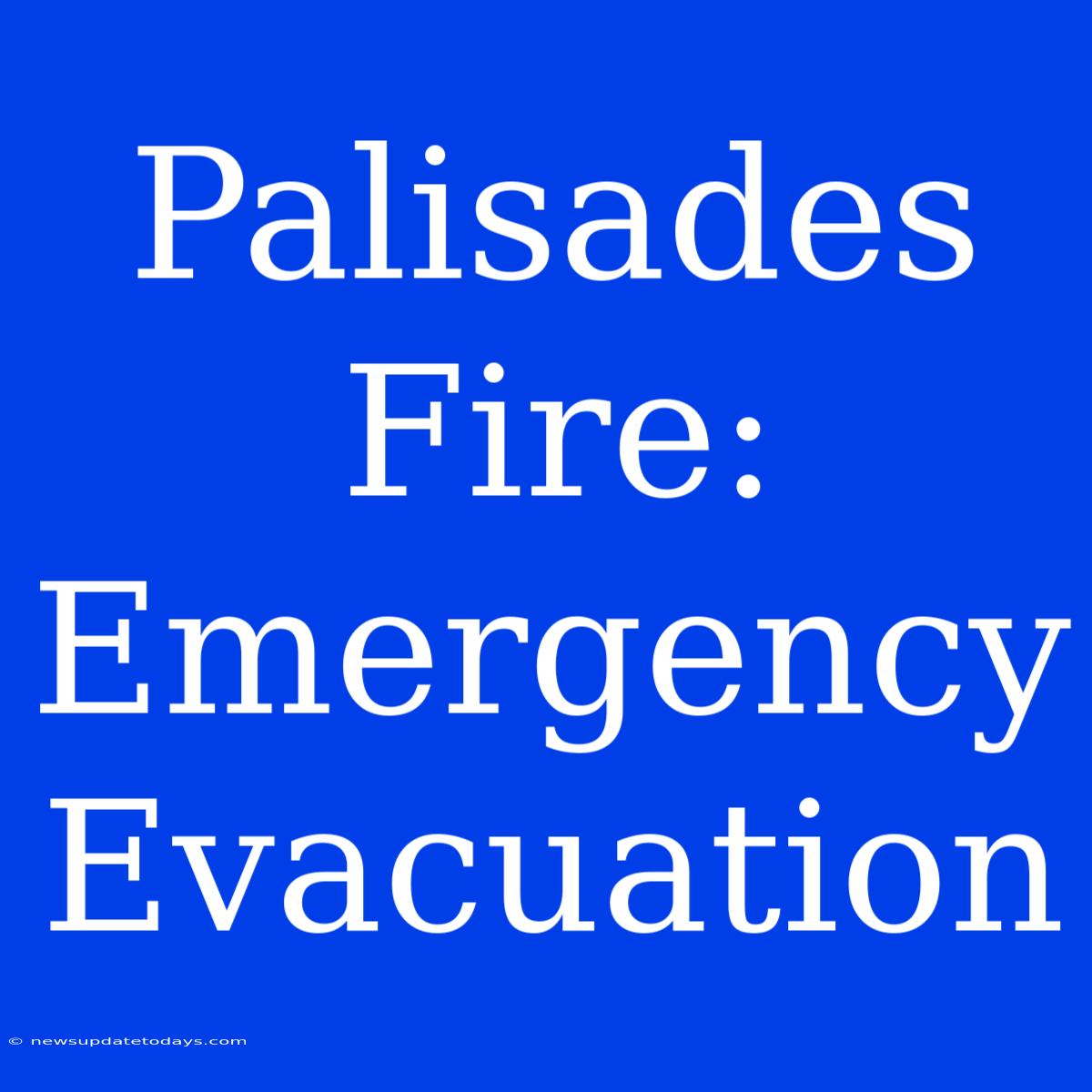Palisades Fire: A Comprehensive Guide to Emergency Evacuation Procedures
The Palisades Fire, a devastating wildfire that ravaged the Santa Monica Mountains, serves as a stark reminder of the importance of preparedness and effective emergency evacuation planning. This article will delve into the crucial aspects of evacuations during such events, providing valuable insights for residents and visitors alike.
Understanding Evacuation Orders
When a wildfire threatens, authorities issue evacuation orders to safeguard lives and property. These orders can range from voluntary evacuations, recommending residents leave as a precaution, to mandatory evacuations, requiring immediate departure. Ignoring a mandatory evacuation order can have life-threatening consequences.
It is crucial to understand the different levels of warnings:
- Evacuation Warning: This indicates that a wildfire is approaching and residents should be prepared to evacuate immediately. Gather essential items and be ready to leave at a moment's notice.
- Evacuation Order: This is a mandatory order to leave the area immediately. Delaying can be dangerous.
- Evacuation Shelter Information: Authorities will provide information about available shelters, including locations, amenities, and transportation options.
Pre-Evacuation Planning: Your First Line of Defense
Proactive planning is paramount. Before wildfire season even begins, take these steps:
- Develop an Evacuation Plan: Designate a meeting point outside the affected area, identify multiple evacuation routes, and inform family members and neighbors of your plan.
- Create a Go-Bag: Pack an emergency kit containing essential items such as water, non-perishable food, medications, important documents (ID, insurance), flashlights, batteries, and extra clothing. Consider pet needs as well.
- Stay Informed: Subscribe to local emergency alerts and follow official channels for updates on wildfire activity and evacuation orders. Familiarize yourself with warning signs and sirens.
- Know Your Area: Understand the terrain and identify potential escape routes in case your primary route becomes blocked.
During the Evacuation: Safe and Efficient Procedures
During an evacuation, remaining calm and following instructions is vital.
- Move Quickly and Safely: Avoid congested roads. Follow designated evacuation routes and obey traffic instructions.
- Secure Your Home: Close and lock all windows and doors. Disconnect any gas appliances if possible.
- Stay Alert: Be aware of changing conditions and follow updated instructions from authorities.
- Assist Vulnerable Neighbors: Help those who may need assistance evacuating, especially elderly or disabled individuals.
Post-Evacuation: Returning Home Safely
Returning home after an evacuation requires caution.
- Check for Damage: Assess any structural damage to your property before entering.
- Be Aware of Hazards: Look out for downed power lines, unstable structures, and other potential dangers.
- Report Damage: Contact your insurance company and local authorities to report any damage or injuries.
The Palisades Fire highlighted the unpredictable nature of wildfires and the need for meticulous planning. By implementing these preventative measures and responding efficiently to evacuation orders, we can significantly reduce risks and ensure a safer outcome during wildfire emergencies. Remember, preparation is key to survival.

